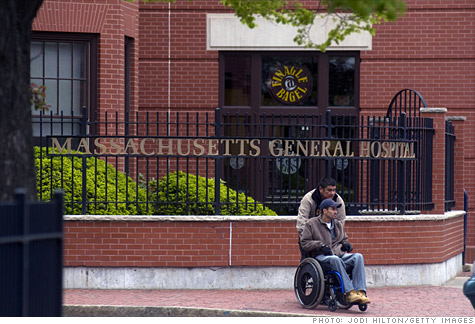Subject: txt hcare - How did health care costs in Massachusetts get so big?
How did health care costs in Massachusetts get so big?
A major reason is that health care exchanges reward people for working less and earning less, says Shawn Tully, a senior editor-at-large with CNN.money.
Data is lacking on how damaging these perverse incentives are in practice. But it's clear in Massachusetts that low-to medium-earning families often suffer financially if they get a raise, work overtime, move to a higher paying job -- or if a spouse rejoins the workforce, says Tully.
For example:
- A family earning $33,000 pays no premium at all under Commonwealth Care.
- But if their pay goes to $46,000, they're obligated to contribute about $2,400.
- That's an effective tax rate of 18.5 percent on that $13,000 raise.
- A pay increase of $44,000 to $46,000 is mostly erased by higher premiums alone.
The federal bill is plagued by the same weakness. For example:
- A $55,000 earner contributes $4,400 a year towards insurance.
- At $65,000, the bill is $6,300; so the family is paying a "tax" of $1,900 or 19 percent on that $10,000 raise.
After payroll taxes, those Americans would face a marginal rate of around 35 percent, a number that's heretofore been the territory strictly for high-earners, says Tully...
READ MORE
.














No comments:
Post a Comment